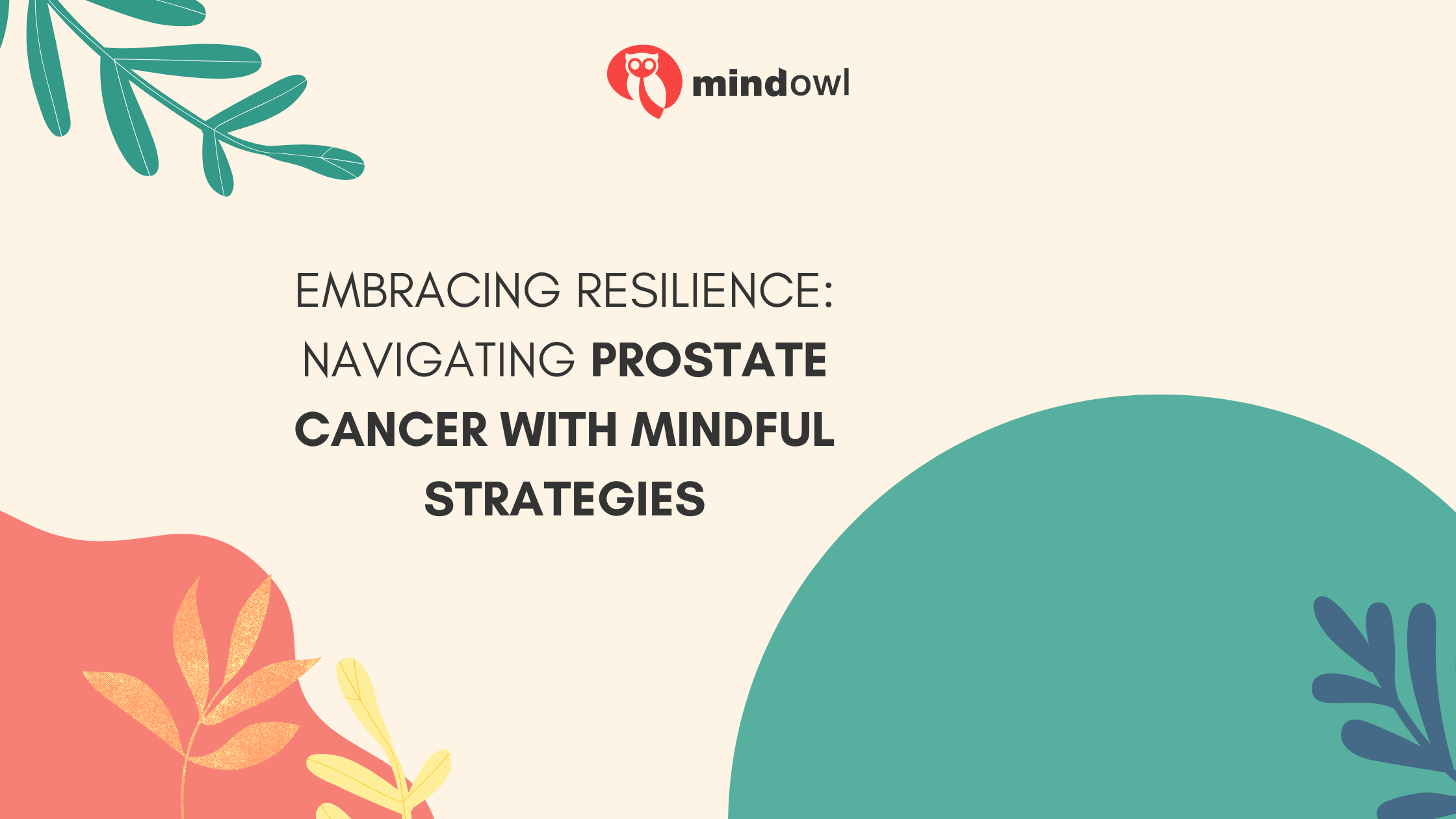
Source – Unsplash
Prostate cancer is a life-altering event that can have profound psychological and emotional ramifications. But you aren’t alone. It’s the second most common type of cancer for men in the US.
The fear, uncertainty, and stress that accompany this diagnosis can be soul crushing. You may feel lost. Not knowing what to do or how to do it. No one wants to hear this news. No one is ready for it. But once you do get the diagnosis, taking the right steps to move forward can make all the difference.
The practice of resilience – adapting and maintaining your well-being in the face of adversity – becomes a game-changer.
Today, we’ll explore the art of resilience through the lens of mindfulness. These strategies can be powerful allies for individuals undergoing this ordeal. There’s a psychological impact, and we’re about to arm you with practical techniques to help you thrive in the midst of the battle.
Let’s get into it.
Understanding the Psychological Impact of Prostate Cancer
Men diagnosed with prostate cancer can experience a wide range of emotions. Shock. Fear. Anxiety. These things are normal.
The psychological impact can last from diagnosis to the treatment and recovery phase. Fears regarding mortality, sexual dysfunction, and life quality can loom large, causing distress.
Prostate cancer carries its own set of societal stigmas and fears. The disease’s association with male sexual health adds another layer of complexity, making it a particularly challenging diagnosis to process.
Coping mechanisms vary from patient to patient. It helps to have a toolbox of techniques that can be drawn upon during difficult moments.
If you haven’t been diagnosed but have a family history, it’s important to know prostate cancer risk factors. Do your best to maintain good mental and physical health and get checked annually by your PCP.
The Role of Mindfulness in Healthcare
Mindfulness is the practice of being fully present in the present. The here. There now. Where you are and what you’re doing.
The focus that seems to be the most challenging is not being overly reactive or overwhelmed by what’s going on around us. This state of being can be cultivated through various meditation and awareness exercises and has shown remarkable benefits for mental and physical health.
A Complementary Approach to Healing
Mindfulness has been found to complement traditional medical treatments by reducing stress, enhancing well-being, and providing a means for patients to take an active role in their healing process.
Hospitals and treatment centers have begun offering evidence-based mindfulness programs to their patients. These programs may include mindfulness-based stress reduction (MBSR), which incorporates techniques such as meditation, body scanning, and gentle yoga to help individuals manage pain and improve their coping skills.
Practical Mindfulness Techniques for Coping with Prostate Cancer
Mindfulness is not a one-size-fits-all solution. What it does bring to the table is a diverse set of tools that can be tailored to an individual’s preferences and needs.
Here are some practical mindfulness techniques that individuals diagnosed with prostate cancer can explore.
Meditation and Mindfulness Apps
Mindfulness meditation involves sitting comfortably. Focus on your breathing. Then, bring your mind’s attention to the present without drifting into concerns about the past or future.
Several apps are available that provide guided meditations specifically tailored for individuals experiencing cancer. But there’s nothing wrong with going old school with it, either. Find a dark, quiet place, and get your meditation on there.
Breathing Exercises
Conscious breathing can be a powerful anchor to the present moment. Deep breathing exercises can help reduce stress and provide a sense of calm, which is vital for managing the emotional whirlwind that can follow a cancer diagnosis.
It’s as simple as taking a deep breath in, pausing, taking a deep breath out, and then pausing again. Rinse and repeat. Many people find it helpful to consciously think “I am breathing in/out” as they are taking that action.
Resilience and Healing
The true value of mindfulness in the context of prostate cancer can be found in the stories of those who have walked the path.
Quiet reflection offers a sanctuary from the cacophony of emotions that cancer can bring. This silence is not a void. It’s a space to acknowledge, accept, and eventually transcend the struggles of the diagnosis.
Some Final Thoughts
Prostate cancer encompasses a broad spectrum of psychological challenges that demand resilience and mental fortitude. The incorporation of mindfulness into your healthcare regimen represents a beacon of hope. It provides a complementary path to healing that transcends conventional medical treatment.
Developing a present-focused awareness cultivates a more profound sense of peace and well-being amidst the struggle.
The principles of mindfulness offer universally applicable techniques that empower patients to navigate their diagnosis gracefully and resiliently.
Did this post help? If you want to dig a bit deeper, you’ll enjoy this one on what it means to be mindful.
MindOwl Founder – My own struggles in life have led me to this path of understanding the human condition. I graduated with a bachelor’s degree in philosophy before completing a master’s degree in psychology at Regent’s University London. I then completed a postgraduate diploma in philosophical counselling before being trained in ACT (Acceptance and commitment therapy).
I’ve spent the last eight years studying the encounter of meditative practices with modern psychology.

